The Future of Future Earth Coasts
Heath Kelsey · | Applying Science | 
IAN has had a strong and consistent involvement with the Land Ocean Interactions in the Coastal Zone (LOICZ) from its inception in 1993. Bill Dennison and Tim Carruthers served on the Scientific Steering Committee in the past, and I got involved with the next iteration, Future Earth Coasts (FEC) which started in 2015. LOICZ and FEC have an impressive history of scientific contributions in biogeochemistry, coastal vulnerability and sustainability, focusing on hotspots in the Arctic, Island States, Coastal Deltas, and Coastal Megacities (Ramesh et al., 2015). So it’s a real privilege to be involved with a new and important change in FEC: I travelled to Shanghai, China from 8-13 October to help determine a new structure, operation, and governance of the group.
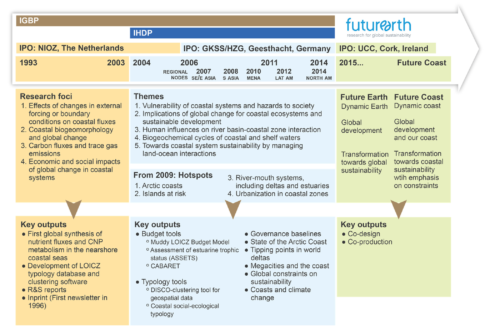
The steering committee normally has 15 participants, including a chair and an executive board, and they determine research priorities for the project. An International Project Office (IPO) serves the steering committee to implement them on behalf of the project. So far, the project office has consisted of one full-time staff person, with additional support only as specific project funding allows. This structure has placed a lot of pressure on this person to deliver all activities to achieve research goals.
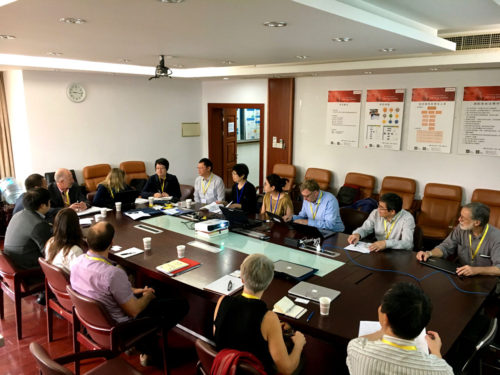
From my perspective, the project has been very well served by the current project office leadership:Martin LeTissier has truly been a superhero of organizational capabilities during his tenure as the director, but having only one person in that position simply limits what can be achieved. A new vision for the project office was devised to improve this situation by distributing the project office responsibilities across several organizations. This simultaneously reduces the burden on any single organization, while increasing the capacity of the project to deliver the FEC research agenda. Additionally, the geographic distribution of host organizations can allow the project to realize the global reach and ambition inherent in the FEC vision.
Several of us met in Shanghai to design this new arrangement. Because not all participants were able to be present in person, and many details remain the be sorted, I won’t specify the organizations, people, or the respective responsibilities each organization will contribute. I will say, however, that the meeting was incredibly positive, and resulted in a plan that will expand FEC's operations. The group of researchers and associated staff associated with FEC (and previously LOICZ) has always been impressive. This new arrangement only amplifies participation and capacity and has already demonstrated some very positive energy.
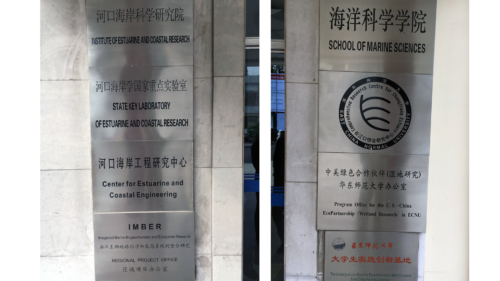
Our hosts at East China Normal University and State Key Laboratory of Estuarine and Coastal Research (SKLEC) were fantastic, both in their ability to coordinate such a large and diverse group in a productive enterprise, and in their demeanor as such welcoming, engaging, and fun people. We all were well looked after and really well fed, which made our discussions fun and productive. I was struck by the capabilities, experience, and capacity of our hosts. SKLEC has an impressive new building that we were able to tour, and, at every turn, one of our hosts would say, “Oh yes, I serve on that panel,” or, “We host that meeting,” or, “We organize that program.” A truly impressive group.
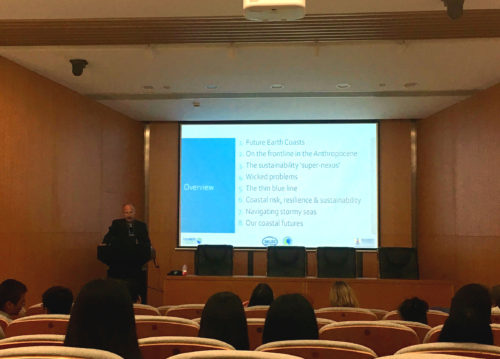
Shanghai is also an amazing, modern city, which we actually got out of our conference room enough to see a bit of. There are parks and open areas mixed in with the ultra-modern city amenities that give it a feeling of both the ancient and the modern all wrapped into one. I enjoyed my time here, and eagerly anticipate coming back.
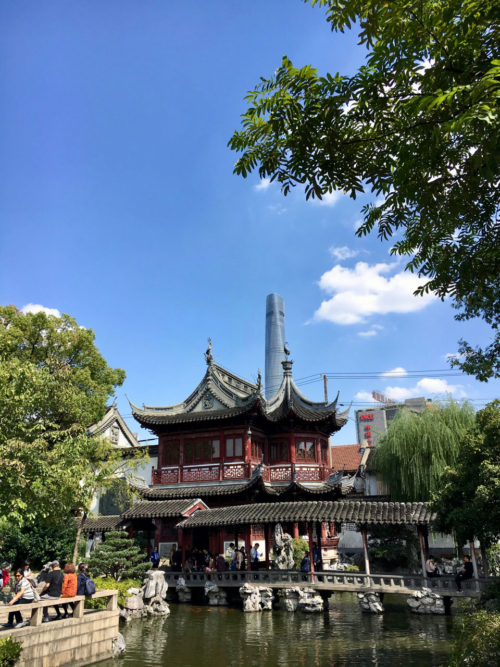
References:
Ramesh, R., Chen, Z., Cummins, V., Day, J., D’Elia, C., Dennison, B., ... & Kremer, H. (2015). Land–ocean interactions in the coastal zone: Past, present & future. Anthropocene, 12, 85-98.
About the author
Heath Kelsey
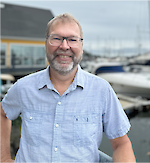
Heath Kelsey has been with IAN since 2009, as a Science Integrator, Program Manager, and as Director since 2019. His work focuses on helping communities become more engaged in socio-environmental decision making. He has over 15-years of experience in stakeholder engagement, environmental and public health assessment, indicator development, and science communication. He has led numerous ecosystem health and socio-environmental health report card projects globally, in Australia, India, the South Pacific, Africa, and throughout the US. Dr. Kelsey received his MSPH (2000) and PhD (2006) from The University of South Carolina Arnold School of Public Health. He is a graduate of St Mary’s College of Maryland (1988), and was a Peace Corps Volunteer in Papua New Guinea from 1995-1998.